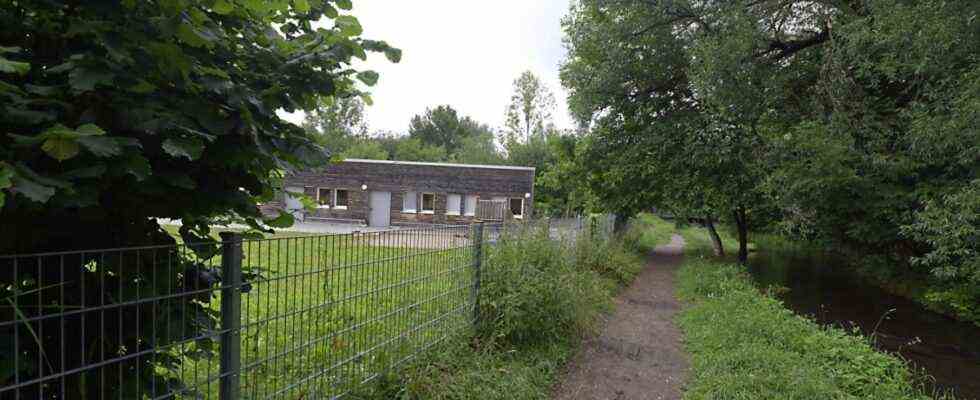The asylum seeker accommodation on the Hachinger Haid is being expanded. In the previous facility in Unterhaching, which was built in 2016, there are currently 75 refugees – significantly too few, believes the Upper Bavarian government and insists that the community meet its quota. The District Office therefore wants to build another modular building in the direct vicinity of the existing accommodation, which can accommodate 116 more people.
A total of 2738 refugees are currently living in the Munich district, “we should actually have to accommodate 1000 more,” said Sabine Kohler, an employee of the district office, who presented the plans to the building committee meeting on Tuesday evening. With the withdrawal of troops from Afghanistan, more asylum seekers would come. “500 were assigned to us, we are forced to create housing,” she said. The second accommodation in Unterhaching could therefore not be smaller than planned. “We have already slimmed down, the government will not go along with any further reductions,” said Kohler.
The community does not have much room for maneuver. Because elsewhere there are hardly any possibilities to build accommodation. Even decentralized accommodation has hardly been possible over the years. “We have been looking since 2016, but there is no such thing,” confirmed the district office employee. Care is also easier when people are housed in shared accommodation.
The additional building on the property near Kapellenstrasse should, however, be structured differently than the existing accommodation. Larger units with two to four rooms as well as their own bathroom and kitchen are planned to accommodate families in particular. The Greens pointed out that they had called for such accommodation in the district council in December, especially for recognized refugees, about three families and a single mother with three children each who could not find housing. This would now be taken into account.
Mayor Wolfgang Panzer (SPD) pointed out that there were never any problems with the current accommodation. With regard to the expansion, he also says: “There was a different plan.” Actually, the community wanted to develop a commercial area and a youth center on the property. Living was not planned here. Unterhaching has to put these plans on hold for 15 years, as long as the accommodation is to exist. At the same meeting, the committee agreed on a right of first refusal statute for this area north of Kapellenstrasse. Panzer would have preferred to accommodate the refugees in the empty building of the music corps, “but the federal government takes a stand.”

